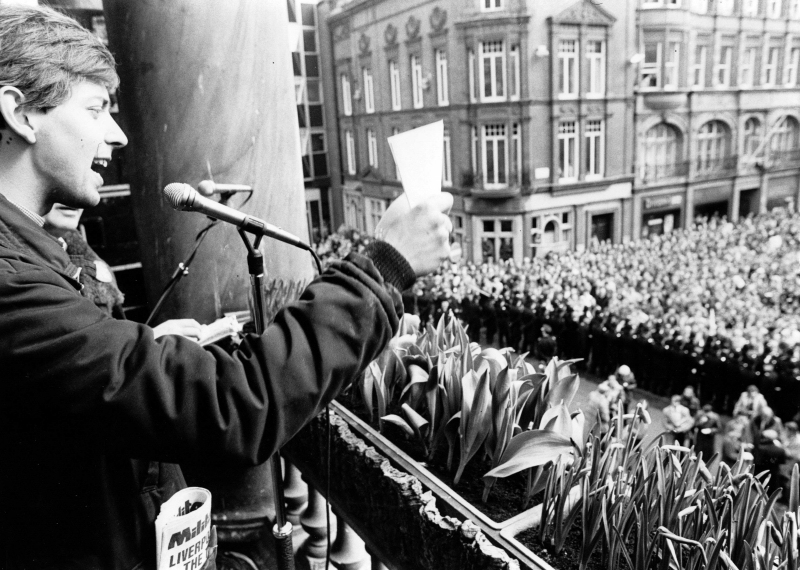IN THE mid-1980s Liverpool Labour council, under the political influence of the Militant (forerunner of the Socialist Party) and the pressure of a mass working class movement, successfully led a campaign to secure extra resources for the city’s urban renewal programme from a hostile Tory government intent on cutting funding.
Rob Windsor
Subsequently, in an act of political revenge, 47 Liverpool Labour councillors were undemocratically removed from office and surcharged thousands of pounds. Every penny of the surcharges was raised from the labour movement in a magnificent fund-raising campaign.
If any council today showed a milligram of the courage and conviction of the 47 Liverpool councillors we would be living in a better place. Unfortunately New Labour councillors are raising the spectre of surcharge as an excuse for not fighting coalition cuts, but instead for passing them on.
I have done a quick question and answer guide of council law for New Labour councillors worried that the twin terminator toffs – Cameron and Clegg – will come and batter them.
If I don’t vote for these cuts and annoy the government I will be surcharged and lose my home?
Oh no you won’t! The power of surcharge was identified as wrong by the Nolan Commission and abolished as part of the 2000 Local Government Act. The only possible remnant of this system is if a councillor personally benefits from any financial losses incurred by a council.
But if I go against the cuts I could be barred from office.
If you do not “have regard” to financial advice given by your council’s chief finance officer and fail to explain the reasons for not going along with his or her advice then, according to their statutory duty, you could be referred to the standards board for breach of your council’s code of conduct which could bar you from office for a period.
But it would not be easy for a finance officer to do this if, like Liverpool, you took a stand as part of a mass campaign to defend your services and communities. Remember it is the local people who put you where you are, not unelected finance officers.
Margaret Thatcher’s vicious Tory regime only moved to surcharge the Liverpool councillors after the 1984-85 miners’ strike ended and Liverpool council was left isolated by the Labour leadership. If the twenty other Labour councils that had pledged to defy the Tory government had not crumbled at the first hurdle, the government would not have been able to surcharge the Liverpool councillors. On the contrary, the government would have been swept from office.
But the government will just take over and send in commissioners to run things.
Despite the threat, it did not happen in Liverpool. Instead the Labour Party, under the spineless leadership of Neil Kinnock did Thatcher’s dirty work for her in witch-hunting the district party. Recently, the only notable time when commissioners were sent in was in Doncaster following a media storm about the running of social services.
For a weak coalition government to try this against a council fighting to preserve services, and especially one with local workers mobilised in support, would be an entirely different matter.
Naturally all this would depend on mobilising support but tens of thousands supported the councillors in Liverpool on mass demonstrations. This organised fightback actually won extra cash for services.
The next Labour councillor who tries to back away from saving local services should recognise that by voting for massive cuts they will in effect be voting to abolish themselves. After all, if the services go, what is the point of having these surplus-to-requirement back bench councillors anyway?
Local democracy
Just how responsive to local people was the Militant-influenced Liverpool city council? London Evening Standard journalist Simon Jenkins recently wrote:
“The most distinctive feature of the militant Left’s rule of Liverpool in the Eighties was its impact on urban renewal. Responding to the local public, the council smashed most of the hated towers to the ground and left neighbourhood groups to plan their replacements. The result was no more decks, stairwells and broken lifts set in windy parks, as dictated by professional architects. Instead people decided to revert to terrace houses, like those taken from them in the Sixties. It was an object lesson in democracy.”
A far cry from today’s councils!









